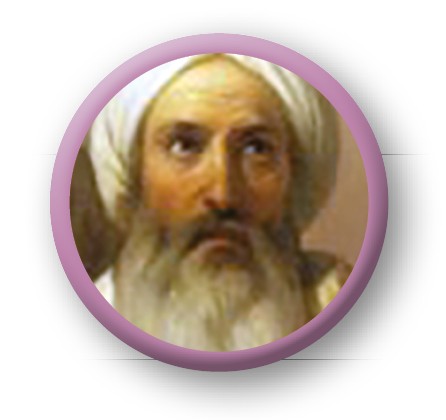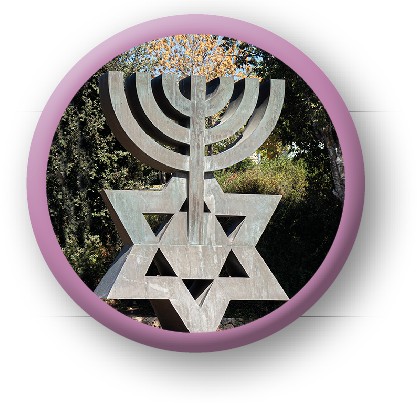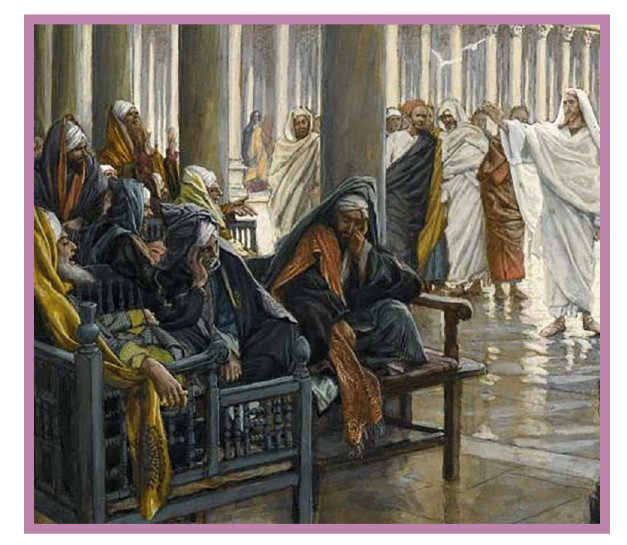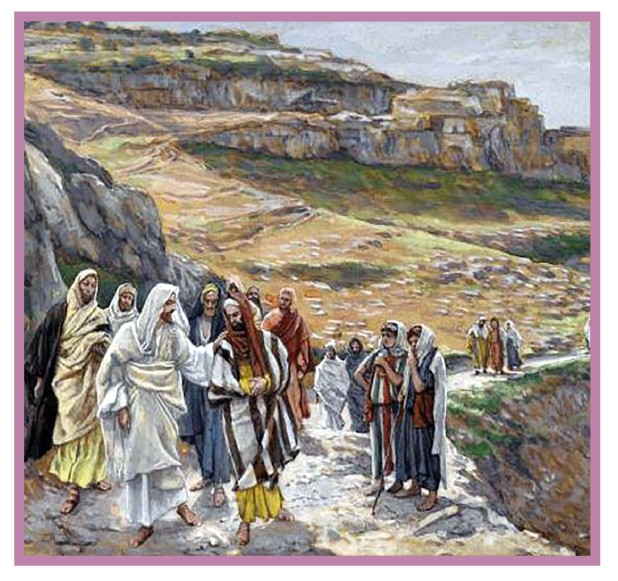Our lives are from an early age a never-ending process of decision making. Changing circumstances often mean that decisions may have to be changed. The reality is that there are always decisions, and not always easy ones, for us to make in life. What I have to say about making decisions falls into three parts:
- the first concerns one man
- the second concerns a nation
- and the third concerns you and me.
The Big Decision
Although we might not realise it there is a fundamental decision that affects our whole attitude to decision making. We can put it like this: the big decision we all have to make is what direction is our life going to take? In turn, the answer to that depends on how we see the beginning of things. If we decide, as many people do, that we are all here as a result of blind chance, then there is no God. But I suggest that if we look objectively at the complexity and interdependence of the natural world we can only conclude, “This could not have happened by chance, there must be an intelligence behind it.”
We are now immediately faced with another question. Science might be able to furnish us with some knowledge of “How?” But if there is a Creator behind this wonderful world then we must ask ourselves, “Why?” That is a question that science cannot answer. If the universe was created by a God then surely He must have an interest in what He created. Many people, looking at the problems that confront us today, might well think that there is not much evidence for that. That, I suggest, is because they have not properly understood what God has revealed to us of His plan and purpose.
1. Abraham
What God has revealed of His purpose is revealed in His book, our Bible. We could pick up the story from many points, but we will begin with Abram (who later became Abraham). Here was a man in whom God saw a lot of potential. In the article on page 8 we considered his wonderful faith in God’s promise to give him descendants. Now, we’ll see what that means to you and me.
Abram was asked to do something that sounds incredible to us: ‘Now the Lord said to Abram, “Go from your country and your kindred and your father’s house to the land that I will show you. And I will make of you a great nation, and I will bless you and make your name great, so that you will be a blessing. I will bless those who bless you, and him who dishonors you I will curse, and in you all the families of the earth shall be blessed’ (Genesis 12:1–3).
Well, aren’t you and I part of ‘all families’? So how are we going to be blessed? We’ll come to that later. Imagine how you would feel if you were suddenly asked to leave your home with all its comforts—your neighbourhood and surroundings with all its facilities—and wander around living the life of a traveller until you were told when and where to stop! Would you be able to do that? It needed a great deal of faith to take such a step. But Abram did it.
Later, he had a vision from God concerning his future. He had been given the promise of becoming a great nation, but he had no children. God assured him that he would have an heir, and many more (15:1–6). The essential thing I want us to note is that here was a man who was faced with having to make immense decisions: should he believe God, or not? ‘And he believed the Lord, and he counted it to him as righteousness’ (v. 6).
We shall see later how vital this was. Belief and righteousness are two intertwining themes that run through the Bible from cover to cover. You see, Abram wasn’t naturally righteous in himself. You have only to read his life story to see that. But his faith in God made a crucial difference.
2. Israel
We will return to Abram later, but let’s turn now to the second part of our consideration, to the time when his family had grown. From a community of some 70 people making a living as herdsmen and then, because of famine, migrating to Egypt, they grew into a multitude whose very size was seen by Egypt’s rulers as a potential threat.
The book of Exodus begins at a time when life had become well-nigh intolerable for them, for they had been forced into slavery. Abraham’s family were worshippers of God like him, and it was to God that their descendants now turned in their misery. God heard them and gave them a leader, one Moses. His story is an interesting one on its own, but we must ignore most of it for now. What I will say is that Moses had an exceptional upbringing, but when he became of age he made a decision—to work for the freeing of the Israelites (Hebrews 11:24–25).
He and his brother Aaron, acting on God’s instructions, went to confront Pharaoh: ‘Thus says the Lord, the God of Israel, “Let my people go”’ (Exodus 5:1).
Notice that phrase. God was claiming the descendants of Abraham as His particular people.
Moses’ repeated requests were met by Pharaoh’s repeated refusals. Each one of these refusals was followed by a plague. Now, the Egyptians were worshippers of many gods and each plague was directed at one or more of these idols. You can follow the sequence at your leisure in Exodus chapters 7 to 12, but you only have to look down the list to see that cumulatively they amounted to a systematic spoiling of the entire Egyptian economy.
It is not then surprising to find that when eventually the Israelites left, some of the more perceptive Egyptians saw there was no future in staying behind and left with them. ‘And the people of Israel journeyed from Rameses to Succoth, about six hundred thousand men on foot, besides women and children. A mixed multitude also went up with them, and very much livestock, both flocks and herds’ (Exodus 12:37–38).
We are not told specifically who this ‘mixed multitude’ were. It seems likely that they were Egyptians. Remember that these people had seen the havoc that had been made of Egypt. They had realised that their gods were as nothing compared with the God of the Israelites, and they wanted to be part of that deliverance.
Later on we read more about this, in Deuteronomy 4:34–39. The people made a decision based on their experience of what they had seen in Egypt.
3. You and Me
The third part of our consideration concerns each of us individually. It is another and very important decision that we all have to make. This concerns our attitude to the Lord Jesus Christ. Before his birth, the angel of God appeared to his step-father Joseph and said, ‘Joseph, son of David, do not fear to take Mary as your wife, for that which is conceived in her is from the Holy Spirit. She will bear a son, and you shall call his name Jesus, for he will save his people from their sins’ (Matthew 1:20–21). That raises three questions:
1. What is a sinner?
2. How will his people be saved from their sins?
3. Who are his people?
What is a sinner? We could say, anyone who thinks that rules are made for other people. I had an uncle who never broke the legal speed limit on the road. If you drive a car, do you do the same? Do you ever lose your temper? You and I may not commit big sins (as far as we’re concerned)—but we cannot pretend to be perfect. Only one person in the whole of the world’s history can claim that distinction: the Lord Jesus Christ!
Throughout his ministry, Jesus went about healing the sick, teaching about forgiveness of sins, and preaching the good news of the Kingdom of God. What happened to him? The rulers of the day didn’t want their position and authority threatened. They wanted this troublesome teacher out of the way, so they crucified him. But this was not the end.
So we come to our second question, how will his people be saved from their sins? We have good evidence in the Bible that Jesus was raised from the dead. There is the fact that after his resurrection a group of frightened, bitterly disappointed followers who thought of going back to their old occupations became enthusiastic preachers of his teaching; they travelled the then known world, making his teaching known to everyone who would listen.
One of them was Peter who, talking to the crowds after Jesus had been raised to life and then ascended to heaven, said, ‘Repent and be baptized every one of you in the name of Jesus Christ for the forgiveness of your sins, and you will receive the gift of the Holy Spirit’ (Acts 2:38). Then to another crowd, ‘Repent therefore, and turn back, that your sins may be blotted out, that times of refreshing may come from the presence of the Lord, and that he may send the Christ appointed for you, Jesus, whom heaven must receive until the time for restoring all the things about which God spoke by the mouth of his holy prophets long ago. Moses said, “The Lord God will raise up for you a prophet like me from your brothers. You shall listen to him in whatever he tells you”’
(Acts 3:19–22).
I mentioned Moses earlier. Peter was showing that his preaching was a continuation of something that had been going on for centuries. In fact it is still going on now, and it reaches far into the future. The greatest thing of all is that we are able to take advantage of that offer of forgiveness if we want to. The writer to the Hebrews puts it very attractively when, after listing many of the great faithful and admirable characters who have gone before, he wrote, ‘All these, though commended through their faith, did not receive what was promised, since God had provided something better for us, that apart from us they should not be made perfect’ (Hebrews 11:39–40).
What a prospect that is. Imagine being made perfect. No longer making mistakes; no longer doing things we regret and having to say sorry. Imagine too, quoting Peter’s words, living in ‘the time for restoring all the things about which God spoke by the mouth of his holy prophets’ (Acts 3:21): living in the company of all the great characters about whom we read in the Bible. Compared to anything this world can offer, how wonderful is that?
Finally, our third question: who are his people? I said we would return to Abraham. The Apostle Paul explains this very simply and clearly:
In Christ Jesus you are all sons of God, through faith. For as many of you as were baptized into Christ have put on Christ. There is neither Jew nor Greek, there is neither slave nor free, there is no male and female, for you are all one in Christ Jesus. And if you are Christ’s, then you are Abraham’s offspring, heirs according to promise (Galatians 3:26–29).
When you believe and are baptised, you enter God’s family. Christ died for your sins. The way of salvation is open before you.
Making the Right Decision
We have been reading about people who have made decisions. Now the default position is that naturally we are unrelated to these promises. We have a lot of thinking to do. We have seen that there is a great future for this world. We have seen how we can become one of God’s people and have a part in His plan for this earth. We all have a decision to make. With that decision comes a wonderful privilege but equally a big responsibility and commitment. It is not something to be entered into lightly.
When we leave home and start to make our own way, our own decisions, we must be careful who we choose for our friends. We must make every effort never to do anything that would be displeasing to our Lord Jesus or his Father. Our hope and prayer is that all who read these words will consider the greatness of this offer,and join the thousands through the ages who have accepted it, waiting for the great day of the return of the Lord Jesus Christ.
Michael Buckler







